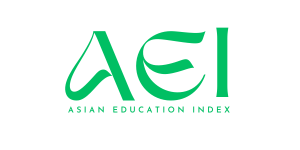Differences between assessment and evaluation
Keywords:
Assessment, formative, summative, teachingAbstract
This article provides useful information about assessment, assessment in education. Assessment plays an important role in teaching, regardless of the purpose. We all know that assessment in the education system, the examination of knowledge - clearly shows the results achieved. In addition, assessment is one of the aspects that allows students to see how they are mastering and how they are absorbing science-related skills. I also found it appropriate to dwell on specific and appropriate types of assessment. When it comes to evaluation, many think the goal is to get the result. Assessment is also a tool for the teacher on how to continue the teaching process. For an assessment to be useful, it must adapt itself to the mandatory standards and academic expectations of the particular context in which it occurs. The types of assessment depend on what purpose it is aimed at.
References
“Assessment for learning” Dr.Cheryl A Jones. 2005
“Current Issues in Language Evaluation, Assessment and testing.” Ch. Gitsaki and Ch. Coombe. Cambridge Scholars Publishing 2016
Centers for Disease Control and Prevention. (2008). Introduction to Process Evaluation in Tobacco
Use Prevention and Control. Atlanta, GA: U. S. Department of Health and Human Services,
R. W. Tyler, R. M. Gagne, & M. Scriven (Eds.) (1967). "The methodology of evaluation". Perspectives of curriculum evaluation. Chicago, IL: Rand McNally. pp. 39–83.
Glickman, C.D., Gordon, S.P., & Ross-Gordon, J.M. (2009).Supervision and instructional leadership: a developmental approach Allyn and Bacon, Boston, MA.
Sarah del Tufo (13 March 2002). "WHAT is evaluation?". Evaluation Trust. The Evaluation Trust. Retrieved 13 May 2012.
Staff. "DAC Network On Development Evaluation". OECD - Better Policies For Better Lives. OECD.
Internet materials. https://pediaa.com/difference-between-assessment-and-evaluation/
Test (student assessment)” By KF – English Wikipedia .Image:Test.jpg (Public Domain) via Commons Wikimedia
Downloads
Published
Issue
Section
License

This work is licensed under a Creative Commons Attribution-NonCommercial 4.0 International License.
User Rights
Under the Creative Commons Attribution-NonCommercial 4.0 International (CC-BY-NC), the author (s) and users are free to share (copy, distribute and transmit the contribution).
Rights of Authors
Authors retain the following rights:
1. Copyright and other proprietary rights relating to the article, such as patent rights,
2. the right to use the substance of the article in future works, including lectures and books,
3. the right to reproduce the article for own purposes, provided the copies are not offered for sale,
4. the right to self-archive the article.













